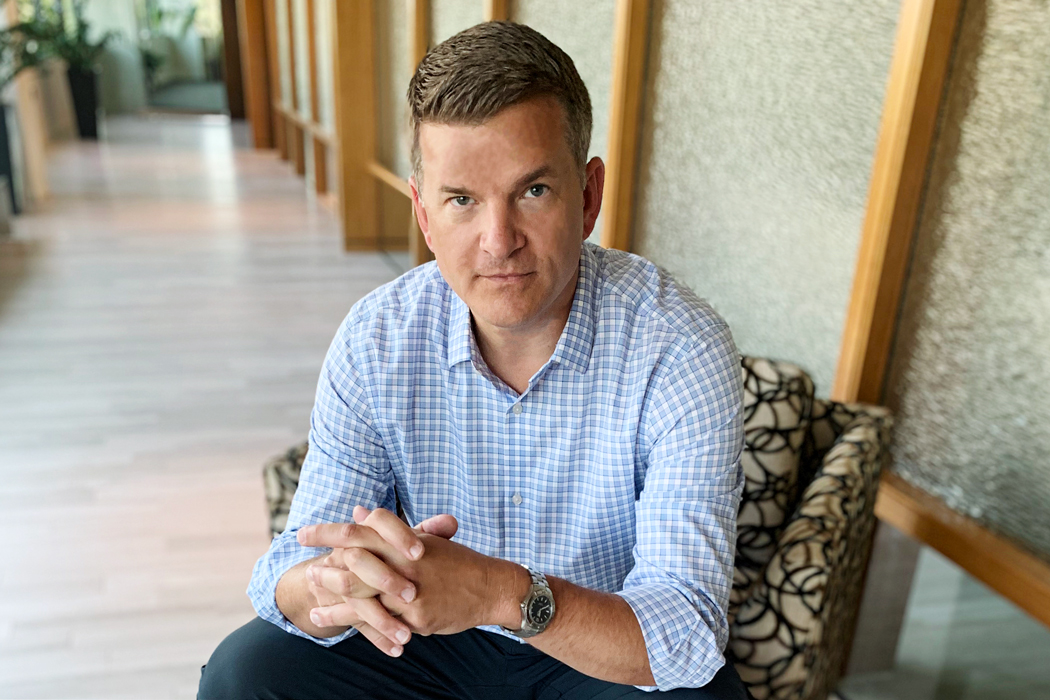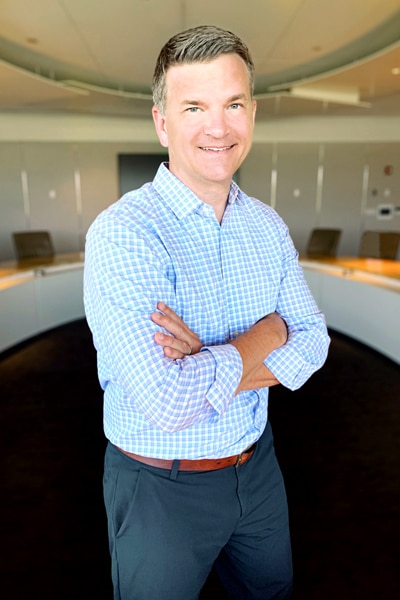Dover Corporation’s Andy Hettinga solves issues for more than twenty-four thousand employees in forty countries and twenty-five states

Courtesy of Modern Counsel
By: Keith Loria, Contributor at Modern Counsel
Dover Corporation, based in Downers Grove, Illinois, is a Fortune 500, diversified global manufacturer boasting a portfolio of eighteen companies—each of which operates in individual niche markets with its own leadership teams, operating systems, employment policies, and decision-making authority.
That’s what makes all that Andy Hettinga has achieved as the company’s vice president and associate general counsel of labor and employment so impressive.
“From a labor and employment perspective, Dover is an extremely diverse and complex environment. We are in more than forty countries and have roughly twenty-four thousand people globally. In the US alone, we’ve got more than twelve thousand employees in twenty-five different states,” he explains. “Each has its own leadership and employment policies. In terms of complexity of practice, it’s a great challenge.”
Still, the company has a very lean legal department overall, including just two employment lawyers. Thus, a handful of lawyers sometimes wind up getting dragged into areas outside their comfort zones.

Take data privacy, for example. When Hettinga first started with the company in 2016, he had very little experience in the area. Yet alongside a small team within Dover’s legal department, he planned and implemented a comprehensive compliance plan in advance of the General Data Protection Regulation’s effective date, which was critical to protect Dover’s numerous operating companies with a large presence in several EU countries.
The plan was implemented globally across the entire Dover portfolio, including in the US. Hettinga and the Dover data privacy team have continued to be heavily involved in data privacy issues ever since, particularly as Dover has consistently rolled out new global data programs and initiatives.
“I’m really proud of that because although we are super lean and don’t have dedicated data privacy counsel, we put a world-class GDPR compliance plan in place. And we’ve been able to efficiently keep it rolling while self-performing a significant amount of the work,” he says.
In terms of regulatory challenges, things can get tricky when dealing with multiple countries and government agencies. In the US, requirements vary widely when it comes to labor and employment (L&E) issues, particularly on hot-button topics like pay equity, wages and hours, paid sick leave, and restrictive covenant enforcement. And when you’re talking on a global scale, the different policies and procedures needed only multiply.
“We can’t take a uniform approach to regulatory issues; we’d have to constantly be modulating the approach, depending on what part of our company we are talking about,” Hettinga explains. “We can’t take a one-size-fits-all approach. That generates a lot of work and complexity.”
Prior to committing to law, Hettinga spent some time after graduating from the University of Iowa writing for a local newspaper and managing bars and restaurants. He moved to Chicago and spent five years writing qualifications packages for a national general contracting company, writing submittals for huge public projects like airports and hospitals. Then the law bug hit.
“I had always dreamed about going to law school. But after years in the construction industry, I finally decided just to make the big change and dive fully in. It was scary to me at the time,” he remembers. “But I don’t regret the delay at all. That nonlegal work experience has really helped me over the years in my career and informed my approach to a lot of things in the law.”
Hettinga spent eight years at two private law firms in Chicago, then he came to the in-house role at Dover in 2016.
“For an L&E lawyer, Dover was about as interesting an in-house job as you could get,” Hettinga explains. “The diversity and complexity of our different operating companies essentially makes it like I have different clients all the time. It’s been a great experience.”
As a global manufacturing company deeply entrenched in numerous essential industries, Dover’s companies have been operating continuously throughout the COVID-19 pandemic. And nearly every aspect of those operations intersects with Hettinga’s practice area.
“This crisis has impacted us in a unique way,” he shares. “We have companies that make commercial kitchen equipment and refrigeration cases for grocery stores. We have companies that make garbage trucks and trash compactors. We have some that directly supply to the medical technology and pharmaceutical industries. We have a company that makes gas pumps that are used in retail gas stations across the country. All of these companies have been part of the core supply chain stream for essential industries that were critical to keep running throughout the COVID-19 crisis.”
While those companies have continued to operate over the past four months, Hettinga says he’s often felt like the “coronavirus counsel.”
“No question, it completely dominated my workload—every minute of every day felt like it was spent managing the crisis. It’s been a wild three months for us, and I’m really proud of the work our internal COVID response team has done to keep us running as smoothly as possible during these crazy times,” he says.
Before the outbreak, Hettinga had a variety of projects on his plate that he hopes to get back to before 2020 comes to an end. Among those are his plans to continue optimizing the company’s wage-an-hour approach and continue standardizing best practices around core functional employment areas across Dover’s diverse portfolio of companies.
“Over the past few years, we’ve really made an effort to provide centralized support resources and standardize core HR practices. We think it’s really important to keep pushing that forward,” he says. Next up for Dover, Hettinga notes, will be to assess FMLA, paid sick time, and short-term disability plan administration issues.
Leading outreach and training programs for company HR leadership is also a large part of Hettinga’s role. “I think it’s critical to have your own training content, to keep it highly tailored for your specific environments and realities. It has to be practical and useful to the HR teams in the field, or it won’t land.”
He’s particularly proud of an initiative he started in partnership with the company’s internal compliance and HR team to provide live, comprehensive training on how to conduct investigations. He and his fellow L&E team member developed an investigation “boot camp” for HR leaders who investigate internal complaints. The two-day, on-site live training requires participants to work through planning and investigating a hypothetical sexual harassment complaint, and it includes (among other things) live mock witness interviews.
“It’s been a great program. Just before the COVID crisis kicked into high gear, we held a session in Downers Grove [Illinois]. We had people come in and play witnesses for our HR folks in a live setting, which really helps build that critical interviewing skill that’s so important to good investigation work,” he says.
Hettinga is looking forward to the day when the next of these live training sessions can be held. For now, he and Dover have adjusted to operating in crisis mode. “I thrive on it. I need high activity and high energy,” Hettinga shares. “I’m one of those people who lives and breathes work, and I like the intensity and action.”
This article originally appeared in Modern Counsel.